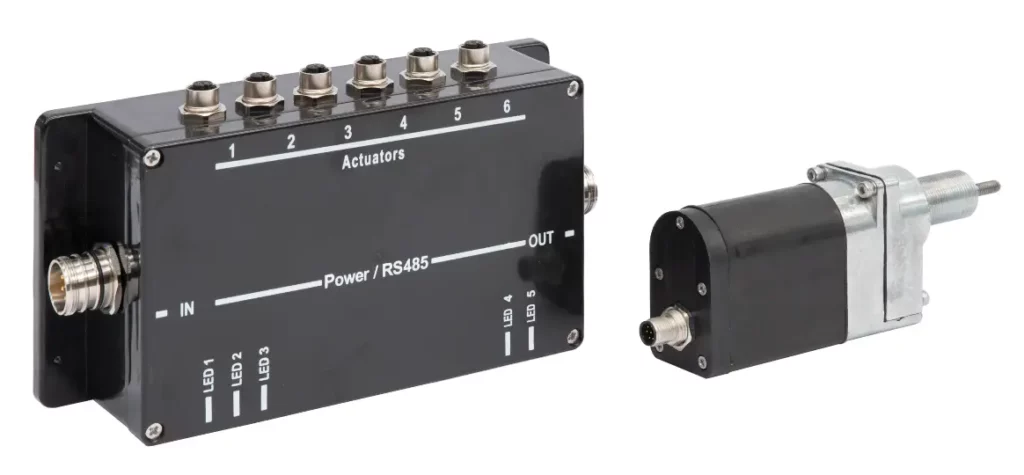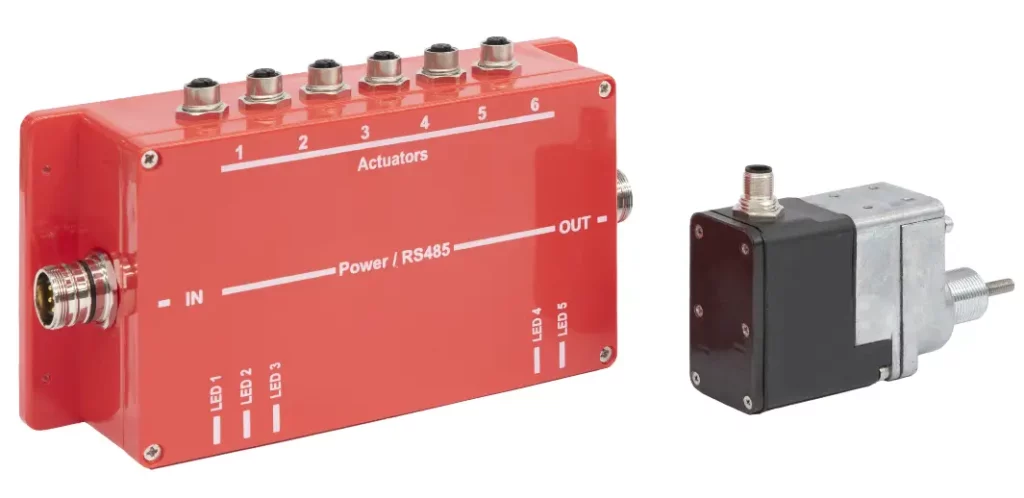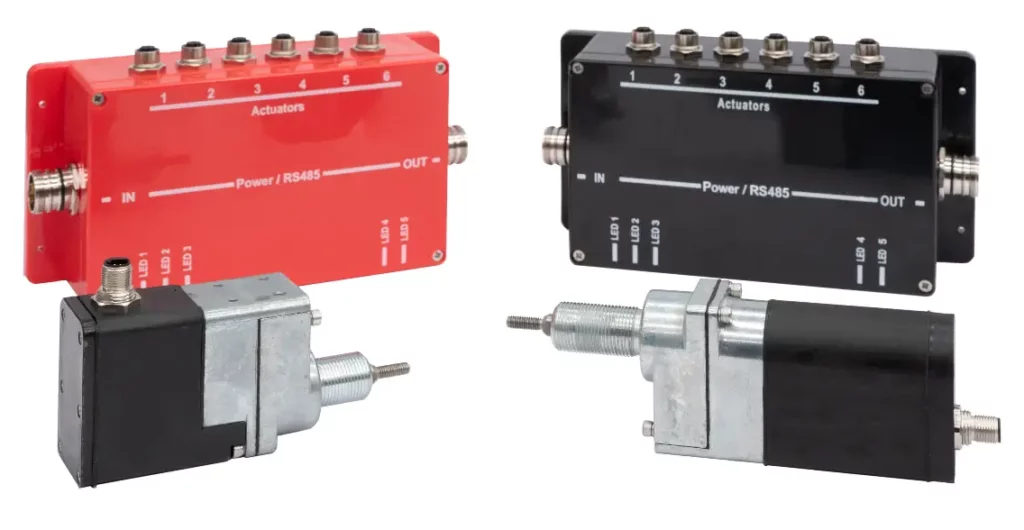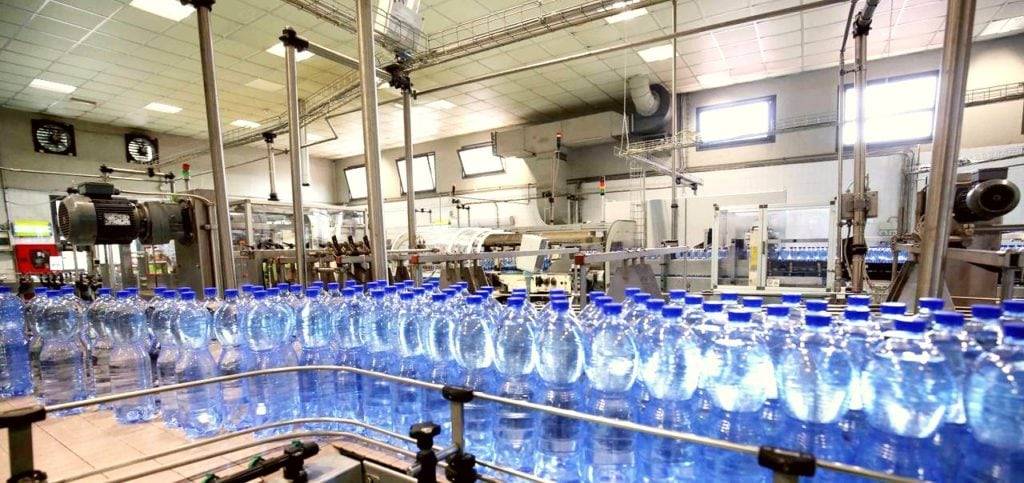AET ACTUATOR, AET CONTROL UNIT
ITEMS
- AET Actuator
- AET control unit
- Control Unit interconnecting cable (multiple lengths)
- Actuator cable (multiple lengths)

AET actuator features
- Operating voltage: 24VDC
- Load: 300N
- Maximum stroke: 50mm
- Speed: 14mm/s
- Maximum current: 1.5A max
- Accuracy: +/-0.5mm
- AET Embedded sensors: rotary encoder 2 lines/inch + home switch
- Embedded non-rotating: yes
- Rod material: AISI303
- Gears material: sintered steel
- Body material (fixing elements): zinc alloy
- Carters material: ABS
AET control unit features
- Maximum number of actuators: 6
- Rated voltage: 24VDC
- Communication protocol: RS485
- Serial control: yes (up to 127 nodes)
- 5 status control leds
- Dimensions: refer to drawing
AGC ACTUATOR, AGC CONTROL UNIT

ITEMS
- AGC Actuator
- AGC Control Unit
- Control Unit interconnecting cable (multiple lengths)
- Actuator cable (multiple lengths)
AGC actuator features
- Operating voltage: 24VDC
- Load: 300N
- Maximum stroke: 25mm
- Speed: 14mm/s
- Maximum current: 1.5A max
- Accuracy: +/-0.1mm
- AGC Embedded sensors: Optical encoder 75 lines/inch + home switch
- Embedded non-rotating: yes
- Rod material: AISI303
- Gears material: sintered steel
- Body material (fixing elements): zinc alloy
- Carters material: ABS
- Dimensions: refer to drawing
AGC control unit features
- Maximum number of actuators: 6
- Rated voltage: 24VDC
- Communication protocol: RS485
- Serial control: yes (up to 127 nodes)
- 5 status control leds
- Dimensions: refer to drawing
FUNCTIONS AND APPLICATIONS

- Single actuator local stroke setting
- Broadcast stroke setting
- Single actuator enabling/disabling
- Single actuator positioning execution
- Broadcast positioning execution
- Incremental positioning (adjustable steps)
- Sequencial positioning execution
- Synchronized local and/or broadcast management
- Network node autoidentification

HOW DO BOTTLING COMPANIES MANAGE TO MEET A WORLDWIDE CONSUMPTION OF 1 MILLION BOTTLES PER MINUTE?
With a 61% increase in 16 years, the world’s consumption of plastic bottles has risen from 300 billions in 2004 to 583.3 billions in 2020, putting a strain on the bottling industry, according to Euromonitor, an international research institute.


